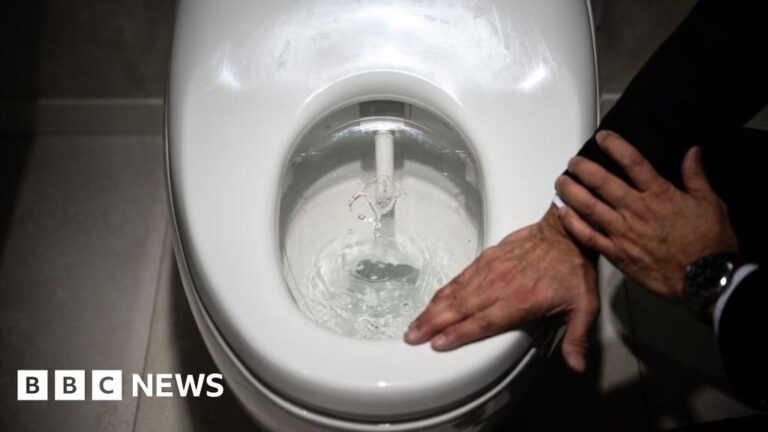Japanese toilets – equipped with music players, automatic flushes and heated seats – are clearly not afraid to make a splash with their innovative design.
But these fashion-forward seats have an unlikely enemy: toilet paper.
Toto, a leading Japanese toilet bowl maker, said last week that users should refrain from wiping their seats with toilet paper because it risks creating micro-scratches on the surface.
The company’s advice came after a series of social media posts complaining about scratches and discoloration.
A Toto representative told Japanese newspaper Mainichi Shimbun that its bidet toilet seats are made of plastic resin due to “resistance to detergents and its ability to be molded into complex shapes.”
However, wiping the seat with toilet paper or a dry cloth can cause small, invisible scratches where dirt can accumulate, leading to discoloration.
But Toto is not the only manufacturer to advise its users against using toilet paper to wipe its toilet seats.
Similar recommendations have already been made by cleaning experts and also published on lifestyle sites.
Instead of dry toilet paper, people recommend using a soft cloth dampened with tap water or detergent. They also advise against using thinners, nylon or metal scrubbers, or abrasives, all of which could damage the surface of the toilet seat.
The company said that while it was investigating more scratch-resistant materials, “there are no plans to change materials at this time.”
The Washlet, Toto’s flagship bidet, includes features such as an automatic lid, an air dryer, and pressure controls for the bidet’s water spray.
According to the company’s website, Washlet introduced the bidet to “a world that had long relied on the less hygienic and much less comfortable method of wiping with toilet paper.”
“Once you experience the soothing comfort and feeling of well-being that comes from cleaning yourself with a hygienic jet of water, you can’t imagine going back to the simple use of toilet paper.”
Japanese toilets, with their thoughtful design seen as an extension of the country’s hotel culture, have become an unlikely tourist attraction for foreigners and a source of pride in the country.

